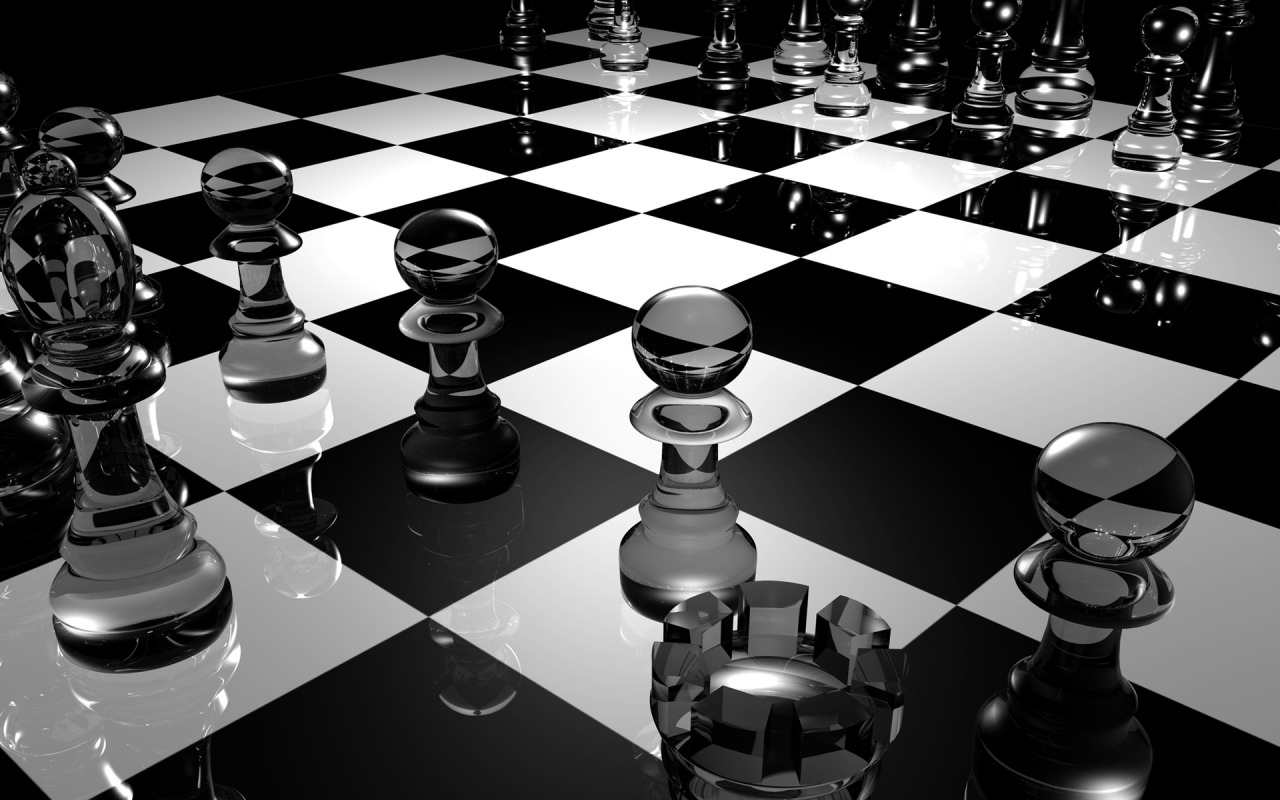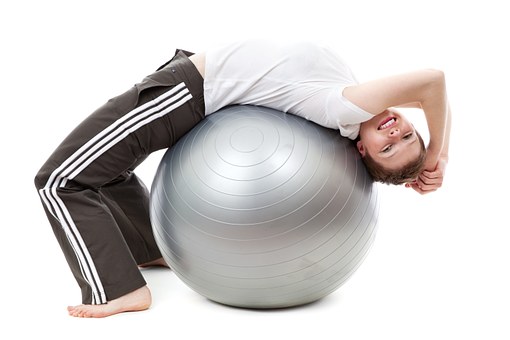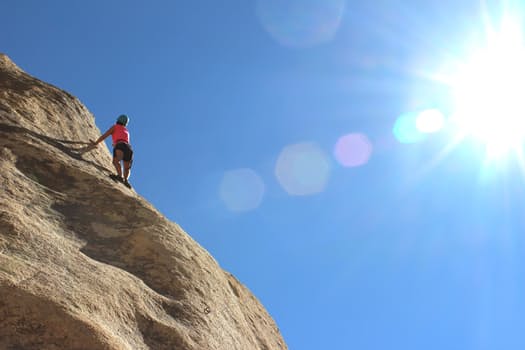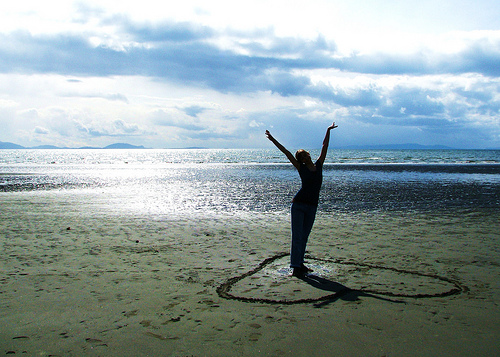Ageless aging is not medical self-care, or holistic medicine. It goes way beyond. It is not only a question of caring for your body. It transforms the way you view yourself and your life. It deepens your connection with you own soul. It sets you free from false beliefs. It opens up your capacity for joy and strength and helps you discover a whole new outlook on life. Preventative medicine is mainly concerned with avoiding illness; holistic health is primarily aimed at treatment—although the treatment of the whole person rather than specific symptoms. Medical self-care aims to make a person able to diagnose and take care of his own minor medical problems.
 Although quantum health for ageless aging shares in some of the benefits of all three, it goes far beyond. Quantum health for ageless aging does not focus primarily on disease or its prevention. Its major thrust is a deliberate choice on the part of the person practising it to live at the peaks and explore the heights of wellbeing: physically, emotionally and spiritually. The choice for living at the peaks, and making full use of your creative potentials, is one which an increasing number of people are making. This is evident in our growing desire for strength, high-level fitness, improving and preserving good looks and establishing lasting vitality. Where once an ambitious man or woman might have wanted recognition, money and possessions, now these are not enough. As we age, we want to make the most of our own potentials in every possible way. Quantum health for ageless aging aims at an enjoyable, challenging and sometimes amusing search for whole-person functioning. As such, it is its own goal and its own reward. The process of moving towards it can be as much fun as the achievements of its ends.
Although quantum health for ageless aging shares in some of the benefits of all three, it goes far beyond. Quantum health for ageless aging does not focus primarily on disease or its prevention. Its major thrust is a deliberate choice on the part of the person practising it to live at the peaks and explore the heights of wellbeing: physically, emotionally and spiritually. The choice for living at the peaks, and making full use of your creative potentials, is one which an increasing number of people are making. This is evident in our growing desire for strength, high-level fitness, improving and preserving good looks and establishing lasting vitality. Where once an ambitious man or woman might have wanted recognition, money and possessions, now these are not enough. As we age, we want to make the most of our own potentials in every possible way. Quantum health for ageless aging aims at an enjoyable, challenging and sometimes amusing search for whole-person functioning. As such, it is its own goal and its own reward. The process of moving towards it can be as much fun as the achievements of its ends.
 Developing quantum health for ageless aging is a kind of game. Like any game, it has its obstacles, its rules, its rewards, its penalties, and a goal. The Shorter Oxford Dictionary defines game as ‘amusement, fun, sport… a diversion of the nature of a contest played according to the rules and decided by superior skill, strength, or good fortune’. The quantum health game is very much like this. In many ways, it is probably the most challenging and rewarding journey you can ever take—a real ‘master game’. This is not only because playing to win can keep you looking and feeling great long after the ‘losers’ have been left by the wayside, but because, like all good games, the play itself can be fascinating to learn. It can also demand considerable skill. Some find the quest for ageless aging easy—they seem to have a natural flair for the challenge. Or, without realising it, they instinctively know the rules. Others have to work harder to learn them. Yet often it’s those who have to work the hardest who get the greatest satisfaction from play, and make the most dramatic improvements in their health and their lives.
Developing quantum health for ageless aging is a kind of game. Like any game, it has its obstacles, its rules, its rewards, its penalties, and a goal. The Shorter Oxford Dictionary defines game as ‘amusement, fun, sport… a diversion of the nature of a contest played according to the rules and decided by superior skill, strength, or good fortune’. The quantum health game is very much like this. In many ways, it is probably the most challenging and rewarding journey you can ever take—a real ‘master game’. This is not only because playing to win can keep you looking and feeling great long after the ‘losers’ have been left by the wayside, but because, like all good games, the play itself can be fascinating to learn. It can also demand considerable skill. Some find the quest for ageless aging easy—they seem to have a natural flair for the challenge. Or, without realising it, they instinctively know the rules. Others have to work harder to learn them. Yet often it’s those who have to work the hardest who get the greatest satisfaction from play, and make the most dramatic improvements in their health and their lives.
 Information about how attitudes, techniques and practices such as optimal nutrition, relaxation skills, exercise, political responsibility, and treats and treatments contribute to optimal wellness. What are you playing against? Time. Perhaps your genes too. Some people find their genetic inheritance an asset to the play. Others, like me, have to compensate for what they didn’t get at birth with more effort and more awareness of how to make the best possible use of what they have been given. One of the major obstacles for all of us is the environmental pollution we are all exposed to. To counter it, you need to increase your awareness of its dangers as well as making good use of agents to counter its effects. These include home-grown foods, herbs, and antioxidant nutrients, which help defeat its negative effect on your body. You also need to take social and political action to ensure that your water, air and food supplies are not further denatured by environmental poisons and radiation. Another major challenge to the goals of ageless aging is indifference; the tendency we all have to go along with cultural and social norms. Why not live on fast foods and chocolate bars? Everybody else does. It is easier than seeking out a fresh crisp salad. Why not indeed? Any skilled quantum health player will tell you quite clearly why not: Such a way of eating is part of a lifestyle that will never help you experience radiant wellbeing and peak functioning mentally, emotionally and spiritually.
Information about how attitudes, techniques and practices such as optimal nutrition, relaxation skills, exercise, political responsibility, and treats and treatments contribute to optimal wellness. What are you playing against? Time. Perhaps your genes too. Some people find their genetic inheritance an asset to the play. Others, like me, have to compensate for what they didn’t get at birth with more effort and more awareness of how to make the best possible use of what they have been given. One of the major obstacles for all of us is the environmental pollution we are all exposed to. To counter it, you need to increase your awareness of its dangers as well as making good use of agents to counter its effects. These include home-grown foods, herbs, and antioxidant nutrients, which help defeat its negative effect on your body. You also need to take social and political action to ensure that your water, air and food supplies are not further denatured by environmental poisons and radiation. Another major challenge to the goals of ageless aging is indifference; the tendency we all have to go along with cultural and social norms. Why not live on fast foods and chocolate bars? Everybody else does. It is easier than seeking out a fresh crisp salad. Why not indeed? Any skilled quantum health player will tell you quite clearly why not: Such a way of eating is part of a lifestyle that will never help you experience radiant wellbeing and peak functioning mentally, emotionally and spiritually.
 Who are your opponents in the play? There are many. For instance, people who are content to allow time to take its course. Those who have been brainwashed into believing that, as the years pass, your body, your vitality and your good looks will inevitably deteriorate. Chronic illness, they think, is a natural part of growing older. Well, my friend, this just ain’t so! False notions about health are also major opponents. For example, the notion that responsibility for your health rests not with yourself but with your doctor or your mother or the state. Then there’s the idea that ageless aging demands too many sacrifices or is not rewarding enough; it might take too much time for too little fun. This is a fierce opponent. But your biggest challenge to overcome is a lack of faith in your ability to play the game. Many uninformed people can’t even imagine that quantum health is possible for them. “We are,” they say, “too old”, “too fat”, “too lazy”, “too busy”. In fact, just the opposite is likely to be true. Learn to play the game, create an ageless aging way of life for yourself and all those “toos” vanish, leaving you an abundance of time and energy. Ageless aging is a game you need no previous experience to play. You simply start wherever you are now and, step-by-step, build your knowledge and your skills until, in time, you can far surpass someone who seemed infinitely better endowed than you at the beginning. Human life is never static. Either you’re getting better or you are getting worse. And, as with any game, how fast you progress and how many rewards you get from playing depends to a large extent on how much fun you find it, and how hard you are willing to play.
Who are your opponents in the play? There are many. For instance, people who are content to allow time to take its course. Those who have been brainwashed into believing that, as the years pass, your body, your vitality and your good looks will inevitably deteriorate. Chronic illness, they think, is a natural part of growing older. Well, my friend, this just ain’t so! False notions about health are also major opponents. For example, the notion that responsibility for your health rests not with yourself but with your doctor or your mother or the state. Then there’s the idea that ageless aging demands too many sacrifices or is not rewarding enough; it might take too much time for too little fun. This is a fierce opponent. But your biggest challenge to overcome is a lack of faith in your ability to play the game. Many uninformed people can’t even imagine that quantum health is possible for them. “We are,” they say, “too old”, “too fat”, “too lazy”, “too busy”. In fact, just the opposite is likely to be true. Learn to play the game, create an ageless aging way of life for yourself and all those “toos” vanish, leaving you an abundance of time and energy. Ageless aging is a game you need no previous experience to play. You simply start wherever you are now and, step-by-step, build your knowledge and your skills until, in time, you can far surpass someone who seemed infinitely better endowed than you at the beginning. Human life is never static. Either you’re getting better or you are getting worse. And, as with any game, how fast you progress and how many rewards you get from playing depends to a large extent on how much fun you find it, and how hard you are willing to play.
 Most people think of health as a state in which you are not ill. You are free of pain and you show no signs or symptoms of the development of disease. They think health is characterized by the absence of something— namely sickness. So long as this is the case, they figure all is well (touch wood), and go about their business until at some later date when, if their luck runs out, they may inadvertently be struck down. Then their rather tenuous state called “health” suddenly turns into its opposite—“illness”. Thinking of health in this way is incredibly limiting. The best anyone can hope for is “non-sickness”. Ageless aging players take a different point of view. They see reality differently. They understand that taking responsibility for how they think and live brings them a high level of protection from illness. They know that the wellness they are aiming for has positive attributes and brings rewards far beyond the absence of disease. It encompasses a whole new view of reality which honors the peaks as well as the depths. Not content with being “un-sick”, they demand vitality, passion, confidence and a sense of freedom to be who they are. They work and play hard. They value authenticity. They seek mental clarity, emotional balance, and spiritual openness which makes it possible to develop their unique creative potentials to the limits. Ageless agers hold an important belief which, to most people, seems quite foreign: They know that we are the prime cause of what happens to our health and our life, not blind fate. Without such a commitment to autonomy, no player in the ageless aging game becomes a winner. With such a commitment, the sky’s the limit. There is no reason why you should not be fit at 90, look twenty years younger than your peers at 70 and feel good about being who you are, warts and all. It is all a matter of developing skills and playing with the knowledge and determination of a pro. Ageless aging has six major facets to it: nutritional action, physical fitness, stress management, self-responsibility, age control and environmental awareness.
Most people think of health as a state in which you are not ill. You are free of pain and you show no signs or symptoms of the development of disease. They think health is characterized by the absence of something— namely sickness. So long as this is the case, they figure all is well (touch wood), and go about their business until at some later date when, if their luck runs out, they may inadvertently be struck down. Then their rather tenuous state called “health” suddenly turns into its opposite—“illness”. Thinking of health in this way is incredibly limiting. The best anyone can hope for is “non-sickness”. Ageless aging players take a different point of view. They see reality differently. They understand that taking responsibility for how they think and live brings them a high level of protection from illness. They know that the wellness they are aiming for has positive attributes and brings rewards far beyond the absence of disease. It encompasses a whole new view of reality which honors the peaks as well as the depths. Not content with being “un-sick”, they demand vitality, passion, confidence and a sense of freedom to be who they are. They work and play hard. They value authenticity. They seek mental clarity, emotional balance, and spiritual openness which makes it possible to develop their unique creative potentials to the limits. Ageless agers hold an important belief which, to most people, seems quite foreign: They know that we are the prime cause of what happens to our health and our life, not blind fate. Without such a commitment to autonomy, no player in the ageless aging game becomes a winner. With such a commitment, the sky’s the limit. There is no reason why you should not be fit at 90, look twenty years younger than your peers at 70 and feel good about being who you are, warts and all. It is all a matter of developing skills and playing with the knowledge and determination of a pro. Ageless aging has six major facets to it: nutritional action, physical fitness, stress management, self-responsibility, age control and environmental awareness.
 One morning I went for a run, as I often did, along the cliffs in Pembrokeshire, Wales. After running for about three miles, I had a sudden impulse to plunge into the wild Irish Sea and swim back to the beach in Manorbier where we lived. This was something I’d never done before. The sun was warmer than usual that morning so I did—running shoes and all. The water was freezing and rough. I had to swim against the tide. An hour later I finally arrived back on our home beach—fingers tingling with the cold and legs a wobbly, as I attempted to make the transition from the water world I’d been moving through to the thinner air-medium of land. But I felt great. I loved the feeling of freedom that this brought me—a strong sense of my own physical limits and a knowledge that they are considerably broader than they were ten years earlier, before I myself became involved in the ageless aging game. Why did I do that swim? To prove I could? Not really. I had few doubts on that account. To make myself fitter and stronger? I had no such notions in my head. I did it for the sheer pleasure of it. It was the same impulse that makes children climb trees. Not to get to the top, but just because the trees are there.
One morning I went for a run, as I often did, along the cliffs in Pembrokeshire, Wales. After running for about three miles, I had a sudden impulse to plunge into the wild Irish Sea and swim back to the beach in Manorbier where we lived. This was something I’d never done before. The sun was warmer than usual that morning so I did—running shoes and all. The water was freezing and rough. I had to swim against the tide. An hour later I finally arrived back on our home beach—fingers tingling with the cold and legs a wobbly, as I attempted to make the transition from the water world I’d been moving through to the thinner air-medium of land. But I felt great. I loved the feeling of freedom that this brought me—a strong sense of my own physical limits and a knowledge that they are considerably broader than they were ten years earlier, before I myself became involved in the ageless aging game. Why did I do that swim? To prove I could? Not really. I had few doubts on that account. To make myself fitter and stronger? I had no such notions in my head. I did it for the sheer pleasure of it. It was the same impulse that makes children climb trees. Not to get to the top, but just because the trees are there.
 The serious answer goes something like this: so you will feel better, look younger, have more energy and live longer. Indeed, all those things are true. But once you get involved in this exciting game, you realize that something much more wonderful is happening. You start to feel exhilarated, vibrantly alive, freer and stronger. Before long, these experiences become a normal part of your daily life. Grasp even a little of these payoffs, realize that they are possible for you no matter what your age or condition right now and you are already half way to your goal. Make this kind of passion part of your life, and the rules of the ageless aging game, which at first needed to be tediously learned, one by one become second nature. By then just playing the game begins to feel so rich and so delightful that you are likely to forget all about its goals. After all, it’s the play itself that you come to love.
The serious answer goes something like this: so you will feel better, look younger, have more energy and live longer. Indeed, all those things are true. But once you get involved in this exciting game, you realize that something much more wonderful is happening. You start to feel exhilarated, vibrantly alive, freer and stronger. Before long, these experiences become a normal part of your daily life. Grasp even a little of these payoffs, realize that they are possible for you no matter what your age or condition right now and you are already half way to your goal. Make this kind of passion part of your life, and the rules of the ageless aging game, which at first needed to be tediously learned, one by one become second nature. By then just playing the game begins to feel so rich and so delightful that you are likely to forget all about its goals. After all, it’s the play itself that you come to love.
Leslie Kenton